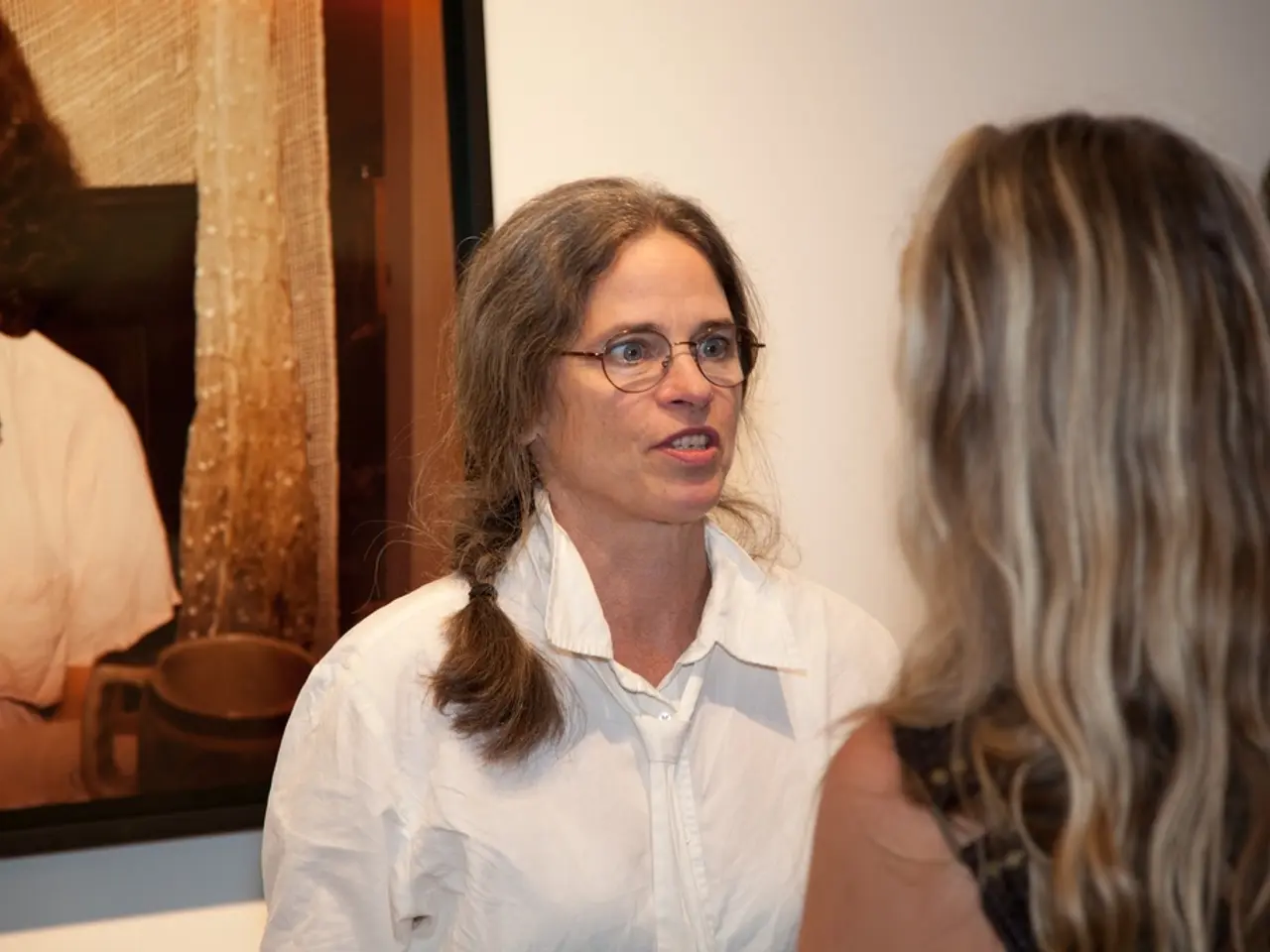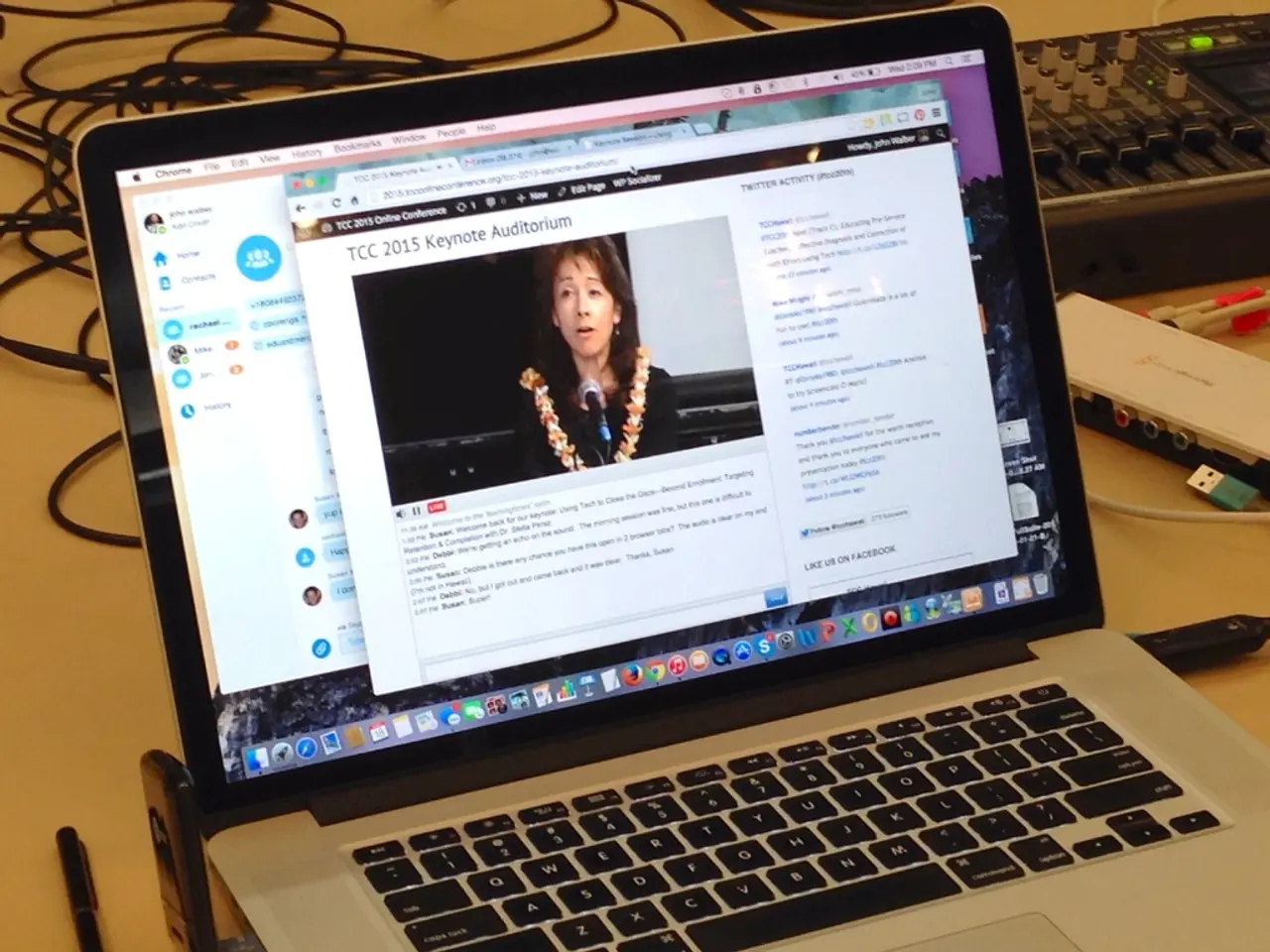Breaking Barriers: Achieving Women's Role as Undergraduate Researchers
In many research and work settings, women's participation often falls short of their male counterparts. However, there are several best practices that can help women-identifying undergraduate students assert themselves and succeed.
Assertiveness, as a fundamental skill, is crucial for professional autonomy and effective communication in complex workplace dynamics. Encouraging women to develop these skills helps them navigate challenges and advocate for themselves effectively. Programs and outreach events by women scientists and engineers create a sense of belonging and pride, improving confidence in career choices and exposing students to diverse career paths [1][2][4].
Role models and leaders play a significant role in dismantling stereotypes and providing tangible examples of success. Providing platforms for women to showcase their skills and leadership helps reinforce the message that they belong in these fields [4]. Allies can support these efforts by fostering inclusive, culturally responsive environments, challenging stereotypes and biases, and offering guidance, networking opportunities, and advocacy [2].
In the average business meeting, women's participation is under 75% of that of men. Speaking without perfection is more important than crafting a perfectly-worded argument, and asking questions during discussions demonstrates interest and allows for full participation. Students are encouraged to voice their passion for research and goals to professors, especially those offering Writing Seminars and ProCES courses with final projects [3].
Setting SMART (Specific, Measurable, Achievable, Relevant, Time-bound) goals is another effective strategy. These goals should address field exploration, research skills, and research opportunities [3]. Many employers value passion and work ethic over qualifications, and both men and women are more likely to interrupt a woman. It is recommended to apply to all positions of interest and to set SMART goals with an academic adviser, career counselor, and research mentor to shape the research pathway for the year [3].
Accessing research resources and tools early in the academic year is also important. Many organizations are hosting introduction meetings at the start of the semester, and it is possible to set up meetings with professors to access these resources [3]. Women are less likely than men to apply for positions they don't believe they are fully qualified for, but it is essential to take the leap and apply for summer research programs and internships, as applications are imminent [3].
Supporting women peers by acknowledging their accomplishments and becoming an upstander can help create a more inclusive research environment. Contributing at the beginning and end of discussions can help gain confidence and be remembered more. Princeton University has student organizations and programs for undergraduate women-identifying students interested in research, including those focused on health, entrepreneurship, sciences, technology, engineering, and research [5].
In summary, assertiveness training, community building, role modeling, and ally-driven inclusion and advocacy are best practices for women-identifying undergraduate students. Allies play a critical role in fostering equitable, empowering environments that enable these students to succeed in research and work settings.
References:
[1] Corbett, J. T., & Greene, D. (2006). The Power of Assertiveness. Journal of Social Issues, 62(4), 745-763.
[2] European Commission. (2018). Gender Equality in Research and Innovation: An Action Plan. Retrieved from https://ec.europa.eu/info/publications/gender-equality-research-and-innovation-action-plan_en
[3] Center for Career Development at Princeton University. (2021). Crafting Specific and Attainable Goals. Retrieved from https://careers.princeton.edu/career-education/career-development-strategies/crafting-specific-and-attainable-goals/
[4] National Science Foundation. (2018). National Academy of Sciences, National Academy of Engineering, and Institute of Medicine. Sexual Harassment of Women: Climate, Culture, and Consequences in Academic Sciences, Engineering, and Medicine. Washington, DC: The National Academies Press.
[5] Princeton University. (n.d.). Resources for Women in Science. Retrieved from https://www.princeton.edu/main/get/resource/?id=49687
During their undergraduate studies, women-identifying students can assert themselves and succeed by developing research skills, setting SMART goals, and participating in research opportunities. For instance, working on a junior paper or senior thesis, and engaging in research programs and internships can help enhance their research skills and give exposure to diverse career paths. However, it's also essential to build a supportive community, like student organizations focused on health, entrepreneurship, sciences, technology, engineering, and research, which can offer peer support and role models.




